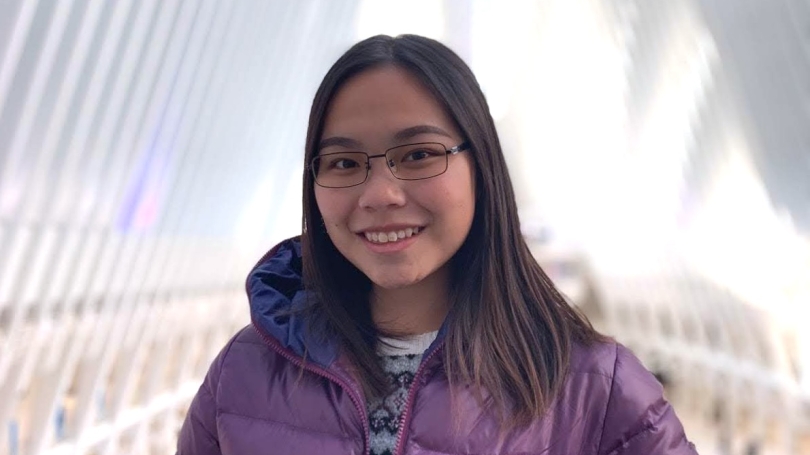What do you consider your hometown, and where did you earn your undergraduate degree? What was it in?
I was born and raised in Hong Kong, and I did my undergraduate and master's degrees in biology at UC San Diego.
What graduate program are you currently in, and what excites you most about it?
I am currently a fourth year PhD Candidate in the molecular and cellular biology (MCB) program, a part of the Curiel lab. The MCB program is very exciting because there is a lot of inter-department collaboration, the program is supportive of its students and there are a lot of opportunities for personal, research and career development.
What is your area of research? What inspired you to pursue this research?
My area of research is in cancer immunology. I have multiple family members and close friends who have been impacted by cancer, and this is unfortunately in no way a unique experience. In the Curiel lab, our motto is to advance the frontiers of biomedical science, and we see a rapid translation from bench to bedside with multiple clinical trials coming out of research from the lab. I am very excited to be a part of this team that can hopefully contribute to finding solutions to cancer.
Your poster was recognized with an award at the Graduate Student Poster Session–what does this achievement mean to you?
I am very grateful to have been recognized. I think now, more than ever, scientists need to have the ability to convey the importance of research to the general public. As graduate students, we usually do research presentations in front of our fellow colleagues who are very much in the field, but it is equally important, and I would argue harder, to convey the same message to individuals who are not well versed in our fields. I am happy to be recognized for this effort of communicating science to a wider audience, and will continue to sharpen my skills to foster better scientific outreach to a lay audience.
Which resources, career support programs, or professional development opportunities at Dartmouth have been most valuable to you, and how have they impacted your experience?
I attended some workshops organized by the Dartmouth Center for the Advancement of Learning (DCAL) to refresh some of my statistics knowledge and also participated in a resume writing session led by associate dean Kerry Landers. I found them to be useful and accessible to students, and there is a large variety of workshops offered, from coding to research statistics to scientific communication/writing. These are all very vital skills for a graduate student, so it is nice knowing that these courses are readily available to us.
Why did you choose Dartmouth to pursue your degree?
I chose Dartmouth because of the diversity of the MCB umbrella program. Its location also gives me a wonderful opportunity to experience all four seasons and live in a part of the world which I've never lived in before!
What advice would you give to other graduate students about making the most of the resources available through Guarini?
Take the first step! Especially utilize the alumni network that Guarini has, and never be afraid to reach out to anyone for help/advice!
